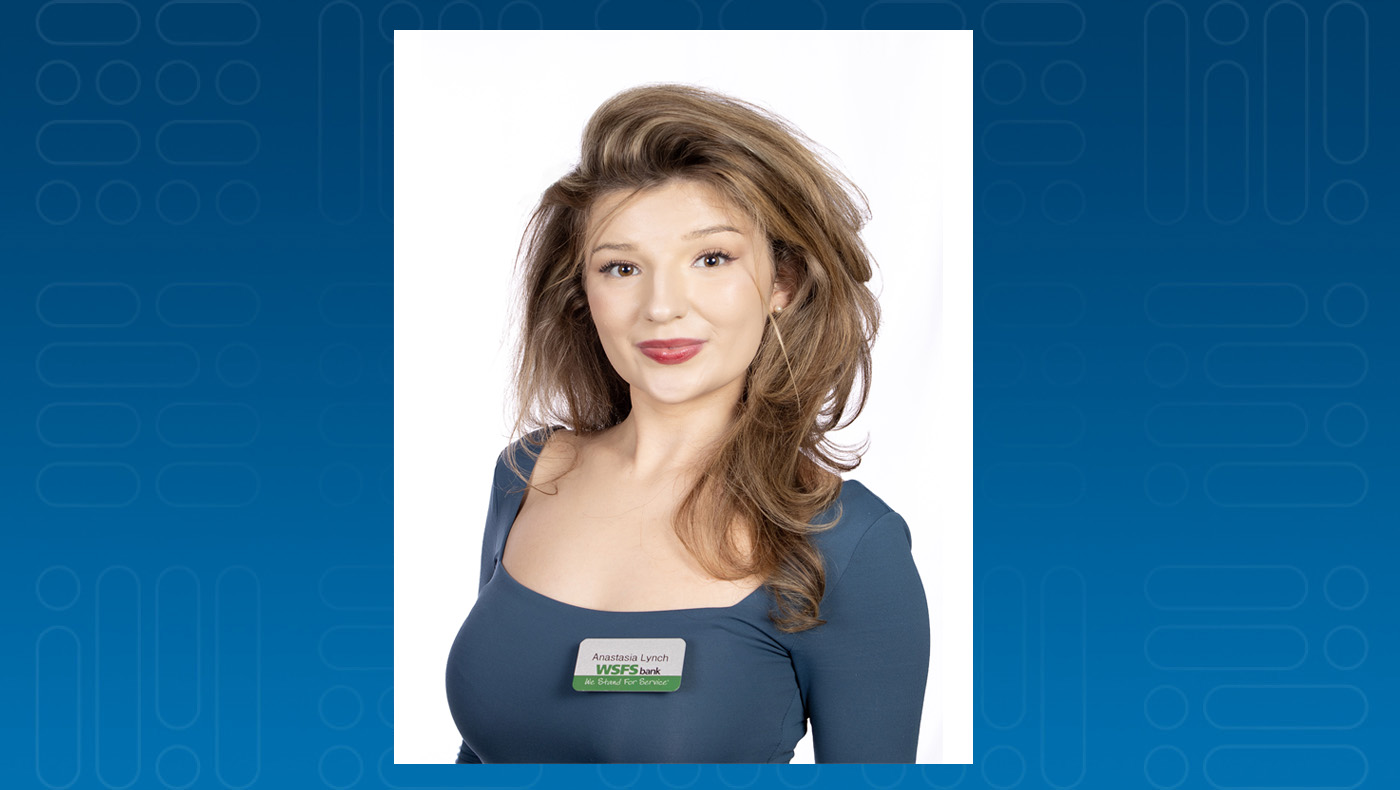Throughout the summer and 2025-26 school year, students in UD’s Alfred Lerner College of Business and Economics are comprising the initial class of the Lerner Co-op Program, a new year-long work-based learning initiative launched with a grant from the Delaware Workforce Development Board.
The program is an exclusive one-year, paid internship/co-op opportunity designed for rising juniors and seniors enrolled in Lerner College to gain meaningful work experience, develop their professional network, and apply classroom knowledge to real-world challenges. All while earning credits toward their degree and receiving monetary compensation from their employers.
Anastasia Lynch, a senior business analytics major, is serving as a total rewards & talent acquisition intern with WSFS Bank. In this Q&A, she details what she has learned and challenges she has faced in his role.
What made you want to apply for the Lerner Co-op Program?
Lynch: I thought the Lerner Co-op Program was a wonderful opportunity to see how data is applied in a real-world setting and to make meaningful connections throughout each division. It’s also a year-long experience instead of a summer length.
How did you learn about the opportunity, and what was the application process like from a student’s perspective?
Lynch: I first heard about the program through a Lerner communications email and decided to attend an info session. From a student’s perspective, the application process was straightforward and supportive. I appreciated how personable it felt. It didn’t just focus on technical skills but also looked at long-term fit and interests.
What drew you to your specific co-op placement? Was it aligned with your major or career interests?
Lynch: Being in total rewards and talent acquisition gives me a behind the scenes view of how data supports people operations. It aligns with my interest in business analytics, especially within industries like financial services.
Can you describe your co-op experience so far? What kind of projects or responsibilities have you taken on?
Lynch: So far, I’ve had the chance to work on workforce tracking dashboards, analyze compensation data, and assist with internship program metrics. One of the my current projects has been helping visualize the ROI of our university partnerships, which has given me a chance to enhance my analytics skillset.
What have you learned on the job that you don’t think you could have picked up in a classroom?
Lynch: I’ve learned that real-world data work isn’t always clean or predictable. You have to be flexible; sometimes the data is incomplete, the timelines shift, or you have to figure out how to explain something technical in a clearer way. I’ve also developed stronger communication skills by presenting findings to different teams, something you don’t fully experience in a classroom environment.
What are you most looking forward to in your position?
Lynch: I’m looking forward to taking on more strategic projects that influence decision-making. As I grow more comfortable with the systems and tools, I’m excited to contribute to high-impact work that ties directly to WSFS’s people strategy and overall business goals.
What kind of support or mentorship have you received from your employer and from Lerner so far?
Lynch: The support has been great from both sides. At WSFS, I’ve had 1:1 mentorship from my manager and regular check-ins with team members who really care about my growth. From Lerner, the co-op coordinators have been accessible and proactive — checking in with helpful resources and making sure I’m getting the most out of the experience.
What advantages do you see for a long-term placement like this, compared to the traditional college internship?
Lynch: A year-long placement allows you to grow into your role and actually see the results of your work. Instead of just completing a project and leaving, you get to follow through, build relationships, and gain a more complete understanding of how a business operates. It also gives you time to develop confidence and contribute in a more meaningful way.
What do you hope to gain from this experience?
Lynch: I hope to gain a deeper understanding of how analytics can drive smart decision-making in business. I also want to build lasting relationships, grow professionally, and leave knowing I learned, contributed and developed in meaningful ways.




